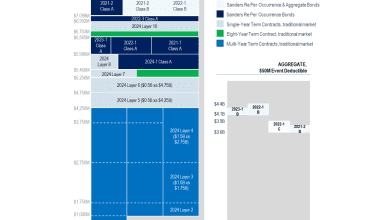Fixed income presents unique window for insurance investors – AXA
In 2024, the fixed income market is emerging as a significant area of opportunity for insurance investors amid a landscape filled with economic adjustments, geopolitical tensions, and the anticipation of a US Presidential Election in November.
Despite these challenges, a report from AXA Investment Managers suggests a period of mid-cycle easing rather than a downturn, presenting a strategic window for insurers to capitalize on within the fixed income sector.
Arnaud Lebreton, head of of AXA US & UK CRM, third party insurance solutions at AXA Investment Managers, offerd insight into the potential strategies for insurance companies looking to navigate the fixed income investment landscape effectively.
“In phase one, we prefer to stay on the safe side given the uncertainty on the economic outlook and to focus on rebuilding book yields and managing duration and reinvestment risks,” Lebreton explained. “The biggest part of yields is the risk-free rate currently and long-duration high-grade assets offer a decent investment income, well above average book yields.”
Lebreton also recommends leveraging bond investments, combined with interest rate swaps, to introduce flexibility in managing duration gaps and capitalizing on high yields in the investment-grade credit sector.
“Forward swaps – another type of derivative – or forward bonds are potentially useful to hedge reinvestment risk and secure future investment earnings and the beauty is they can be structured in a way that is less painful from an accounting standpoint. Setting up a robust liquidity and collateral management framework is key when using derivatives,” he said.
Stressing the importance of selectivity and diversification, Lebreton also advised expanding beyond domestic markets to reduce volatility and the risk of significant losses.
For more speculative market segments, such as high yield and emerging market debt, Lebreton maintains a preference for actively managed short-duration strategies. These approaches are favored for their higher capital returns, reduced volatility, and superior liquidity, positioning investors to seize opportunities across the risk spectrum effectively.
What are your thoughts on this story? Please feel free to share your comments below.
Related Stories
Keep up with the latest news and events
Join our mailing list, it’s free!




